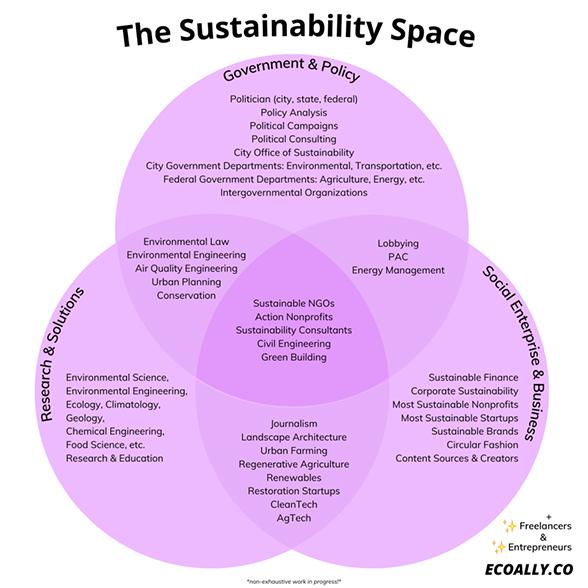ENS Program Description
What can an Environmental & Sustainability Studies degree do for you?
Environmental and Sustainability Studies (ENS) equips students to tackle today's most pressing environmental challenges through an interdisciplinary lens. Our program combines rigorous academic study with hands-on experience and so prepares our graduates to become effective sustainability leaders.
Academic Structure
Students begin with six major requirements taught by faculty from across the university. These courses provide a solid foundation in environmental analysis and sustainable solutions. While engaged completing these requirements, students customize their education by selecting eight additional courses across three specialized areas:
Areas of Expertise:
- Economics
- Environment
- Society
Students concentrate their studies with 5 courses in their primary area, 2 in their secondary area, and 1 in their tertiary area, creating a personalized yet comprehensive educational experience.
Real-World Learning
Central to our program is "engaged scholarship." Students don't just study environmental problems, they work to solve them. Through partnerships with university faculty, nonprofit organizations, government agencies, and private companies in Lexington and beyond, students conduct meaningful research that makes a real difference.
This experiential approach develops essential skills in critical thinking, problem-solving, and professional communication while giving students valuable experience working with diverse stakeholders on complex sustainability challenges.
Career Preparation
ENS graduates emerge as well-rounded professionals ready to drive positive environmental change. Whether pursuing careers in environmental consulting, policy development, corporate sustainability, or nonprofit leadership, our students have the knowledge, skills, and practical experience to contribute meaningfully to a more sustainable future.
Upon completion of the degree, ENS students will demonstrate command in:
- Interdisciplinary Critical Analysis
- Students learn to analyze complex environmental and sustainability issues from multiple disciplinary perspectives—humanities, social sciences, natural sciences, policy, and ethics. The program’s structure "prepares students to analyze complex environmental problems and create sustainable solutions from a variety of disciplinary perspectives."
- Effective Communication
- Graduates gain written and oral communication skills suitable for both scientific and non-scientific audiences. ENS emphasizes "critical thinking, written and oral communication skills" and expects students to "effectively communicate environmental issues and sustainability solutions through scientific and non-scientific writing."
- Critical Thinking and Independent Inquiry
- The curriculum fosters the ability to think critically, develop original insights, work independently, and conduct research. The program explicitly highlights critical thinking, the ability to work independently in the creation of new knowledge, and factual academic knowledge across environmental topics.
- Depth and Breadth in Sustainability Knowledge
- Students develop both specialized expertise (depth) and a broad grounding in sustainability topics including environmental issues, relationships between economy-environment-society, and ethical considerations. The ENS B.A. "educates students in a broad range of fundamental environmental studies subjects with concepts of sustainability integrated throughout," while also requiring electives across three areas (Economics, Environment, Society) to ensure balanced, well-rounded knowledge. The learning outcomes further emphasize factual academic knowledge in environmental issues and expertise in a specific area.
- Professional Engagement & Applied Problem-Solving
- Through experiential learning, i.e., internships, capstone projects, career speaker series, and applied assignments, students build practical, professional readiness and problem-solving skills. The capstone (ENS 400) involves applying learning in a real-world project; the program also integrates career-focused experiences connecting students with professionals and employers.
- Through experiential learning, i.e., internships, capstone projects, career speaker series, and applied assignments, students build practical, professional readiness and problem-solving skills. The capstone (ENS 400) involves applying learning in a real-world project; the program also integrates career-focused experiences connecting students with professionals and employers.
Do you intend to make a living by helping shape our environmental future? Choose ENS!

